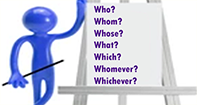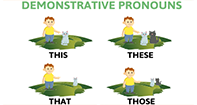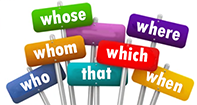Change Avatar
Indefinite Pronouns
Indefinite Pronouns
What Are Indefinite Pronouns?
Indefinite pronouns are used to represent an indefinite noun or pronoun, ones that do not refer to any specific person, place, or thing. There are many indefinite pronouns, so you’ll need to pay attention to whether or not they’re singular or plural, or both.
Take a look at this chart to see how some are functioning:
| Singular | Plural | Singular or Plural | |
|---|---|---|---|
| some- | someone somebody | something | somewhere |
| any- | anyone anybody | anything | anywhere |
| no- | no one nobody | nothing | nowhere |
| every- | everyone everybody | everything | everywhere |
There are many indefinite pronouns, so be sure to read about their functioning below. Just remember that they can function in the same way that a noun would in a sentence, as a subject, a direct object, or an indirect object. Just keep an eye out for where those normally occur in a sentence and you’ll be sure to find one!
How Do You Use Indefinite Pronouns?
An indefinite pronoun can be used anywhere a specific noun is unknown. The trick here is to pay attention to whether or not the subject is singular or plural so that you can make your verb agree.
| Singular | Plural | Singular or Plural |
|---|---|---|
| another anybody anyone anything each either enough everybody everyone everything less little much neither nobody no one nothing one other somebody someone something | both few fewer many others several | all any more most none some such |
Here are some examples:
1) Somebody left all of their school books at the library on the table.
2) Anybody can see that she loves her dog.
3) Everything in the bag can be donated to the poor.
4) Both of them have decided to go to college in the fall.
5) None is going to be the right fit for her narrow foot.
QUICK TIP!
Remember that indefinite pronouns are common in the English language, and will often replace a subject in a sentence. Just be sure to make the verb agree with whichever you choose to use.










